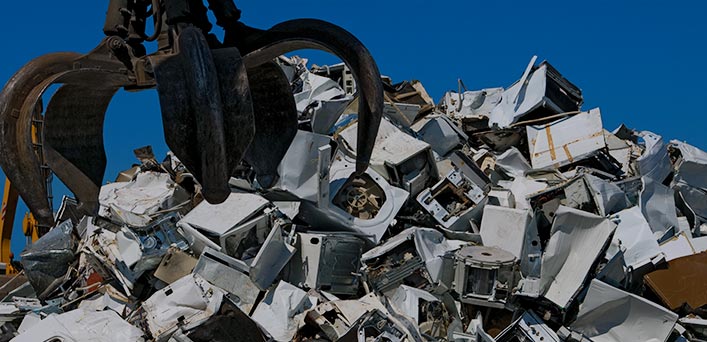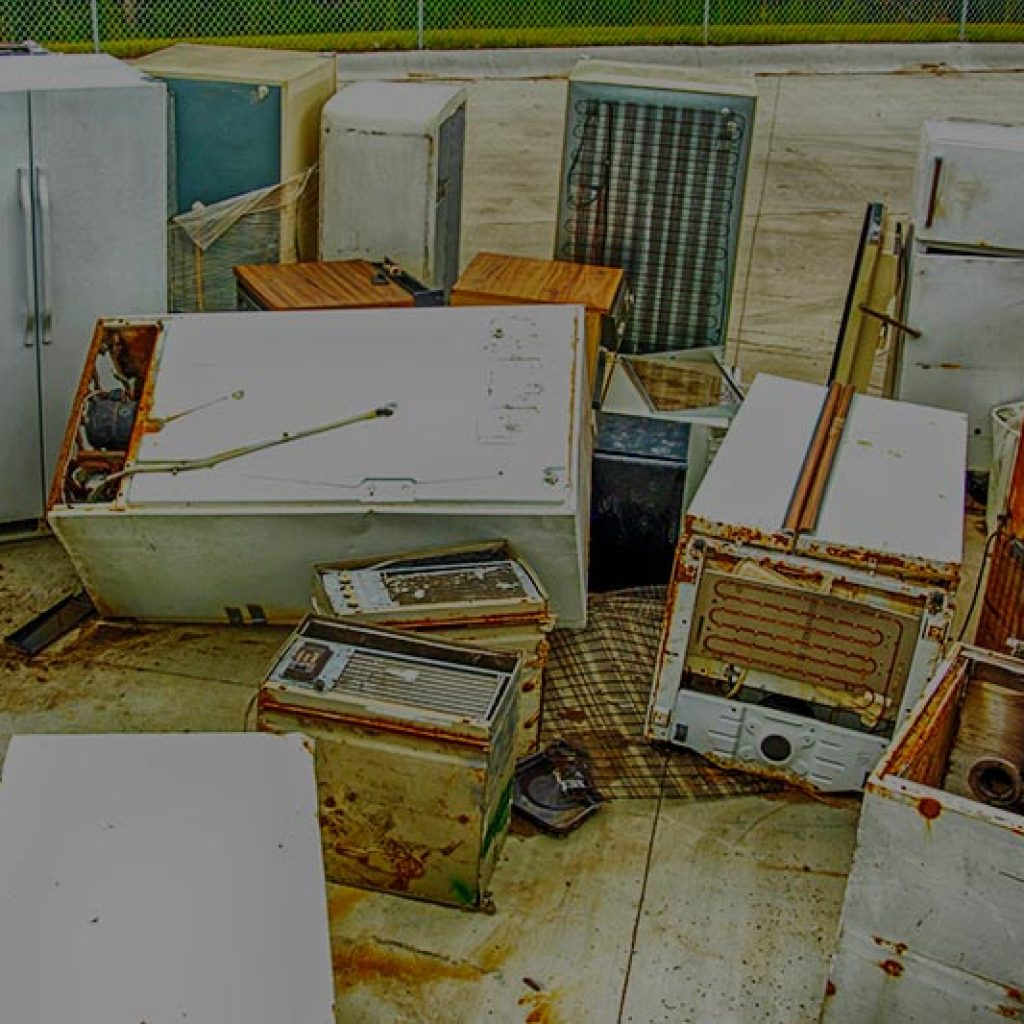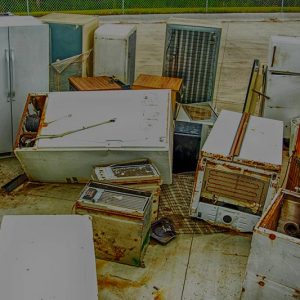Metal and Appliance Recycling
Metal and Appliance Recycling
Where do your old appliances go when you throw them away?
When appliances are sent to landfills and not recycled they cause clutter, trash, and waste that can be extremely harmful to our environment.
Kitchen appliances are often thrown out onto the curb for the garbage collectors to pick up. From there, they go to a landfill where they rust and expel harmful waste into the environment.
Appliances can be recycled in a safe and efficient manner!
Since appliances are not biodegradable, they just sit and take up space. Large appliances like refrigerators, stoves, freezers, washers, and dryers can all be easily recycled.
Many appliances that no longer work can be used for scrap metal. A process is completed that removes any harmful elements and iron from the appliance and then the body or case can be re-used.

But when recycling large appliances or electronics, there are certain guidelines that need to be followed. These items can sometimes contain harmful elements that, if disposed of improperly, can contaminate surrounding soil and water supplies. That’s why it’s important to partner with a responsible, environment-minded company like Responsible Recycling Services.
Accepted Items
We accept all types of metals such as Exercise Equipment, Metal Framing Materials, Cords & Cables, Filing Cabinets, Bed Frames, Pipes, Door Knobs & Hinges, Rain Spouting
Appliances: Refrigerators/Freezers, Ovens, Air Conditioners, Dehumidifiers/Humidifiers, Microwaves, Garbage Disposals, Washing Machines, Dryers, Dishwashers, Water Coolers
We accept all types of metals such as Exercise Equipment, Metal Framing Materials, Cords & Cables, Filing Cabinets, Bed Frames, Pipes, Door Knobs & Hinges, Rain Spouting
Appliances: Refrigerators/Freezers, Ovens, Air Conditioners, Dehumidifiers/Humidifiers, Microwaves, Garbage Disposals, Washing Machines, Dryers, Dishwashers, Water Coolers
So what is FREON anyway?
Freon 113, which is only a particular brand name for cholo-floro-carbon (or CFC), is the gas used to cool older refrigerators and air conditioners. Leaking CFC from appliances creates several problems such as air pollution and health issues.
Freon 113 (also called CFC-113) is a colorless, non-flammable liquid. It does not occur naturally but is produced in large amounts (177 million pounds in 1992) by two companies in the United States. Because of ozone depletion concerns, EPA has restricted future US production of Freon 113.
Freon is recycled from old appliances and put into new appliances.
As long as Freon is properly removed from appliances and used in new appliances the ozone threat is significantly minimized. It is important to make sure the Freon is being responsibly removed to be reused.

Freon 113, which is only a particular brand name for cholo-floro-carbon (or CFC), is the gas used to cool older refrigerators and air conditioners. Leaking CFC from appliances creates several problems such as air pollution and health issues.
Freon 113 (also called CFC-113) is a colorless, non-flammable liquid. It does not occur naturally but is produced in large amounts (177 million pounds in 1992) by two companies in the United States. Because of ozone depletion concerns, EPA has restricted future US production of Freon 113.
Freon is recycled from old appliances and put into new appliances.

As long as Freon is properly removed from appliances and used in new appliances the ozone threat is significantly minimized. It is important to make sure the Freon is being responsibly removed to be reused.



